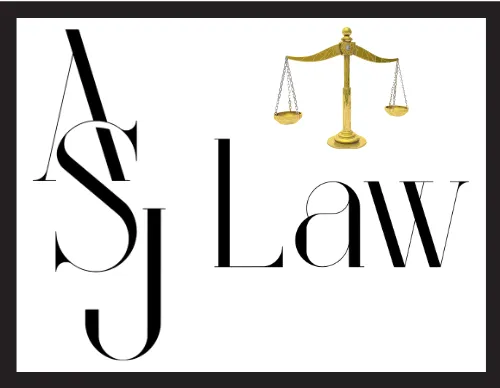
Child Support in New York City: What Every High-Earning Parent Needs to Know
Child Support in New York City: What Every High-Earning Parent Needs to Know
Imagine this for a moment. You are working long hours in your corner office, carrying the weight of a demanding job, making sure your children have everything they need. But when your relationship shifts and the conversation turns to child support, suddenly things feel uncertain. You start asking questions you never thought you would need answers to: How does child support work in New York City? How do you put a co-parent on child support? What happens if your income is higher than average?
You are not alone in asking these questions. Thousands of high-earning parents in New York face the same challenges every year. The difference is that most people only see child support as a bill or an argument. In reality, it is a legal framework designed to protect children and ensure stability. The truth is that child support in New York is as much about strategy and clarity as it is about numbers.
So let us walk through this together. By the time you finish this blog, you will understand exactly how child support works in New York City, the steps you need to take to protect your children and your financial future, and how to avoid the common mistakes that cost families time, money, and peace of mind.

The Core Purpose of Child Support
Fact: Child support is not designed to punish a parent. It exists to ensure that children maintain the same standard of living they would have had if both parents lived together.
According to the New York State Unified Court System, child support covers basics like food, clothing, and shelter. It can also include childcare, health insurance, medical costs, and educational expenses. In other words, it is not just about writing a check. It is about protecting your child’s well-being in every way.
For someone in your position, this means the law expects both parents to contribute proportionally to their incomes. If you earn significantly more, you will likely carry more of the financial responsibility. That can feel unfair in the moment, but the truth is, courts are focused on the child’s best interest, not on balancing the scales between parents.
How Child Support is Calculated in New York
Now let us get into the numbers, because this is where most high earners get nervous. New York follows what is called the Child Support Standards Act (CSSA). It sets out a formula based on a percentage of combined parental income.
Here is how it works:
17% of income for one child
25% for two children
29% for three children
31% for four children
At least 35% for five or more children
But here is the part most people miss. The law applies these percentages up to a combined parental income cap, which in 2025 is set at $183,000. For families like yours, where incomes often exceed this cap, judges have discretion to apply the same formula to higher incomes if they believe it is in the best interest of the child.
This means that even if you earn significantly more than your co-parent, child support calculations can scale beyond the cap. And if your co-parent earns very little or nothing at all, you could find yourself carrying nearly the entire burden.
How to Put a Co-Parent on Child Support in New York
This is one of the most common questions: How do you put a co-parent on child support in New York?
The process begins with filing a petition in Family Court. Either parent can file, and once it is submitted, the court will schedule a hearing. At the hearing, both parents provide financial documentation, including tax returns, pay stubs, and details about childcare or medical costs.
The court then uses the CSSA formula to determine the support amount. In some cases, parents can agree to a support amount outside of the court formula, but it must still be approved by the judge to ensure it is fair and meets the child’s needs.
Here is the hard part: this process is not just legal, it is deeply emotional. Sitting in Family Court while lawyers argue over your income and expenses feels invasive. It feels like your career success is being turned against you. This is why having the right attorney matters. Not to create more drama, but to ensure the process is efficient, accurate, and aligned with your child’s true needs.
What Child Support Actually Covers
Another question parents often ask is, What does child support actually pay for?
In New York, the base support is meant to cover essentials like food, housing, and clothing. But courts can also order parents to share additional costs, including:
Childcare so the custodial parent can work or attend school
Health insurance premiums and out-of-pocket medical expenses
Educational expenses, including private school or college tuition in some cases
Extracurricular activities, depending on the child’s lifestyle
This matters because you are not just covering basics. You are thinking about your child’s future — college applications, after-school programs, travel opportunities. A clear child support order ensures these things are considered and shared fairly.
Common Pain Points High Earners Face
Here is where we need to get real. High-earning parents face challenges that are different from the average family.
Fear of being overcharged: You worry the court will see your income as unlimited and pile on obligations.
Lifestyle inflation: You are concerned that child support will be used to fund your co-parent’s lifestyle, not your child’s.
Career penalties: The long hours you work may make custody and parenting time harder, which could affect your support order.
Public image: For professionals with reputations to protect, messy child support battles can damage credibility.
These are valid concerns. The key is understanding that child support is not just numbers on paper. It is about strategy. It is about presenting your case with clarity so the court sees the reality, not just the dollar signs.
Mistakes to Avoid in Child Support Cases
Let’s talk about the mistakes that cost high earners the most.
Going in without an attorney. Family law is not DIY. Representing yourself may save legal fees upfront, but it can cost you far more in the long run.
Underreporting income. Judges have seen it all. Hiding or minimizing income damages credibility and almost always backfires.
Ignoring financial planning. Support orders impact taxes, retirement, and long-term wealth. Skipping a financial advisor means missing opportunities to protect your future.
Choosing the wrong attorney. Hiring a bulldog who fights every detail may sound impressive, but it usually leads to higher costs, slower resolutions, and unnecessary stress.
The smart move is to work with a lawyer who matches your goals, not their ego. Someone who knows when to negotiate, when to fight, and when to protect your peace.
How ASJ Law Office Helps
At ASJ Law Office, we know what high-earning parents need. You need efficiency. You need discretion. You need someone who can cut through the noise and deliver clarity.
Here is how we help:
Strategic guidance: We explain the process in plain English and outline exactly what to expect.
Financial clarity: We work with advisors to ensure your order reflects your real situation.
Child-focused solutions: We prioritize your child’s needs, not unnecessary battles.
Confidential care: We protect your reputation and privacy every step of the way.
Because at the end of the day, this is not about punishment or power. It is about creating a stable, secure life for your child while protecting everything you have worked so hard to build.
Final Thoughts
Child support in New York City is not easy. It is complex, emotional, and sometimes feels unfair. But it does not have to be overwhelming. With the right knowledge, the right strategy, and the right attorney, you can move through this process with clarity and confidence.
Remember, child support is not about you or your co-parent. It is about your child. And when you keep that truth at the center, you will always find the right path forward.
If you are ready to take control of your child support case and protect your future, book a confidential consultation with ASJ Law Office today.


